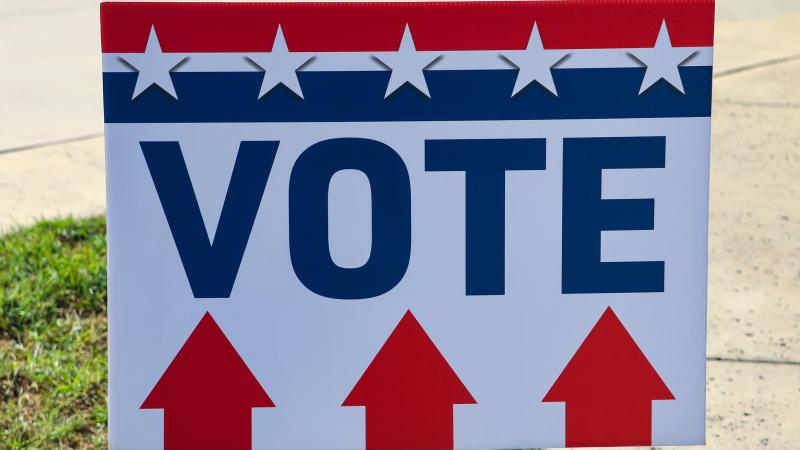With the House still undecided and the Senate evenly split, the election blame game heats up
Sen. Chuck Schumer credited "terrific" Democratic candidates, the party's agenda and accomplishments, and the American people's rejection of "antidemocratic extremist MAGA Republicans."
Heading into week two of the midterm elections, with control of the House of Representatives still up for grabs, Democratic Party leaders are celebrating their surprising success against the expectations of most pollsters and pundits, who had predicted anywhere from a "red tsunami" to a "red wave" to a "red ripple."
Senate Majority Leader Charles Schumer (D-N.Y.) called the elections a "vindication" for Democrats at a press conference on Saturday after the Associated Press declared Catherine Cortez Masto the winner of the Senate seat in Nevada, effectively meaning that Democrats will remain the majority party in the Senate for at least the next two years.
Schumer credited "terrific" Democratic candidates, the party's agenda and accomplishments, and the American people's rejection of "antidemocratic extremist MAGA Republicans," according to The Hill. The idea of extremist Republicans being a threat to democracy became a leading theme for Democrats pushed by President Biden in several speeches, the members of the January 6 committee looking into the breach of the U.S. Capitol, and much of the mainstream media.
"We delivered for the American people, and they knew it," Schumer said.
Going into the election, Republicans were energized by Joe Biden's low job approval numbers and the "right-track wrong-track" numbers showing strongly that Americans were not happy with the Democrats' stewardship of the nation while controlling the White House, the House and the Senate.
The issues seemed to favor Republicans, considering inflation, high energy and grocery costs, and people struggling to keep from defaulting on their home and business loans. Also, the crisis of the open southern border along with the toll of human- and drug-trafficking that accompanies the open border, the loss of energy independence the country had achieved under President Trump, and the disastrous departure from Afghanistan. In addition, there were the high-crime rates in the Democrat-run cities, the politicization of the Justice Department, and concerns about a "woke" military not being battle ready, along with schools indoctrinating children instead of educating them.
According to the Cook Political Report, Republicans nationwide were more than 5 million votes ahead of the Democrats as of Nov. 11.
But that clearly has not translated to victory for the GOP. Various factors are being cited as the reason for the outcome of the midterm elections. How much was the repeal of Roe v. Wade a factor? What about the so-called MAGA candidates, and their continuing claims of election fraud having helped elect Joe Biden and others in the 2020 election? Was Trump's support and rallies for various candidates helpful overall to the Republicans? Or did it support the narrative that the Republican Party is now controlled by Donald Trump, and is therefore a threat to democracy? Pundits will be debating these questions for years to come.
The blame game has taken hold from many directions. Sen. Bill Cassidy (R-La.) on Sunday blamed the Republicans aligned with Trump for keeping the attention on the 2020 election instead of crime and the bread-and butter issues. Trump put the blame on Mitch McConnell, arguing on his social media site Truth Social that the Senate campaign machine didn't spend enough to help support Blake Masters in Arizona, while spending too much to help Sen. Lisa Murkowski of Alaska defeat Trump's candidate Kelly Tshibaka in a race where two Republicans were the final candidates.
"He blew the Midterms, and everyone despises him and his otherwise lovely wife, Coco Chow!" Trump said in his own, inimitable way.
What is not being talked about much in the media is the possibility that the explanations for the surprisingly good outcome for Democrats have more to do with election irregularities, which could include outright fraud as well as incompetence. Just the News recently highlighted a dozen "of the top election integrity concerns being flagged by GOP House members," such as voter registration notices sent to 30,000 noncitizens in Colorado and "an estimated 63,000 erroneous ballots [that] were sent out" in Arizona.
New election rules and regulations initiated during the COVID-19 pandemic have provoked widespread doubts that U.S. elections are still fair and honest. Those new election standards include allowing elections in some states to start a month or two before Election Day and end a week or two after. In addition, there are the issues of flexibility on matters related to voter ID and chain of custody of ballots, along with the waiving of matching signatures and claims of voter suppression when efforts are undertaken to clean up voter rolls by eliminating dead people and people who have moved away or are registered in two jurisdictions.















